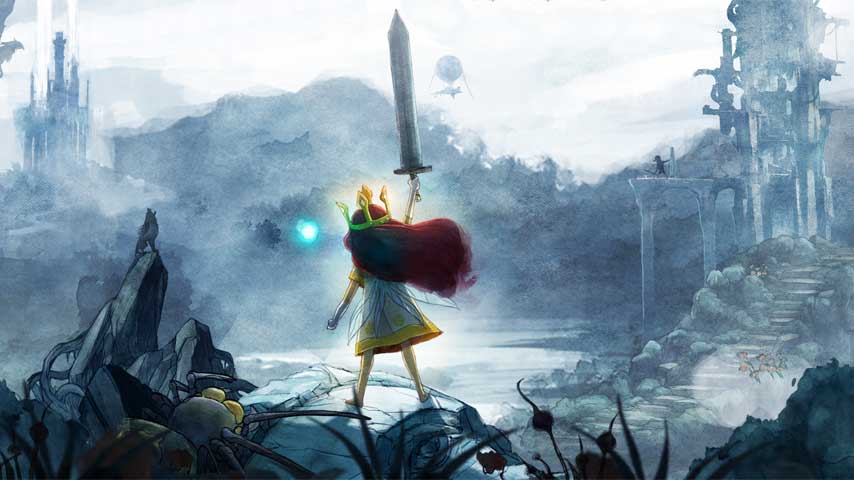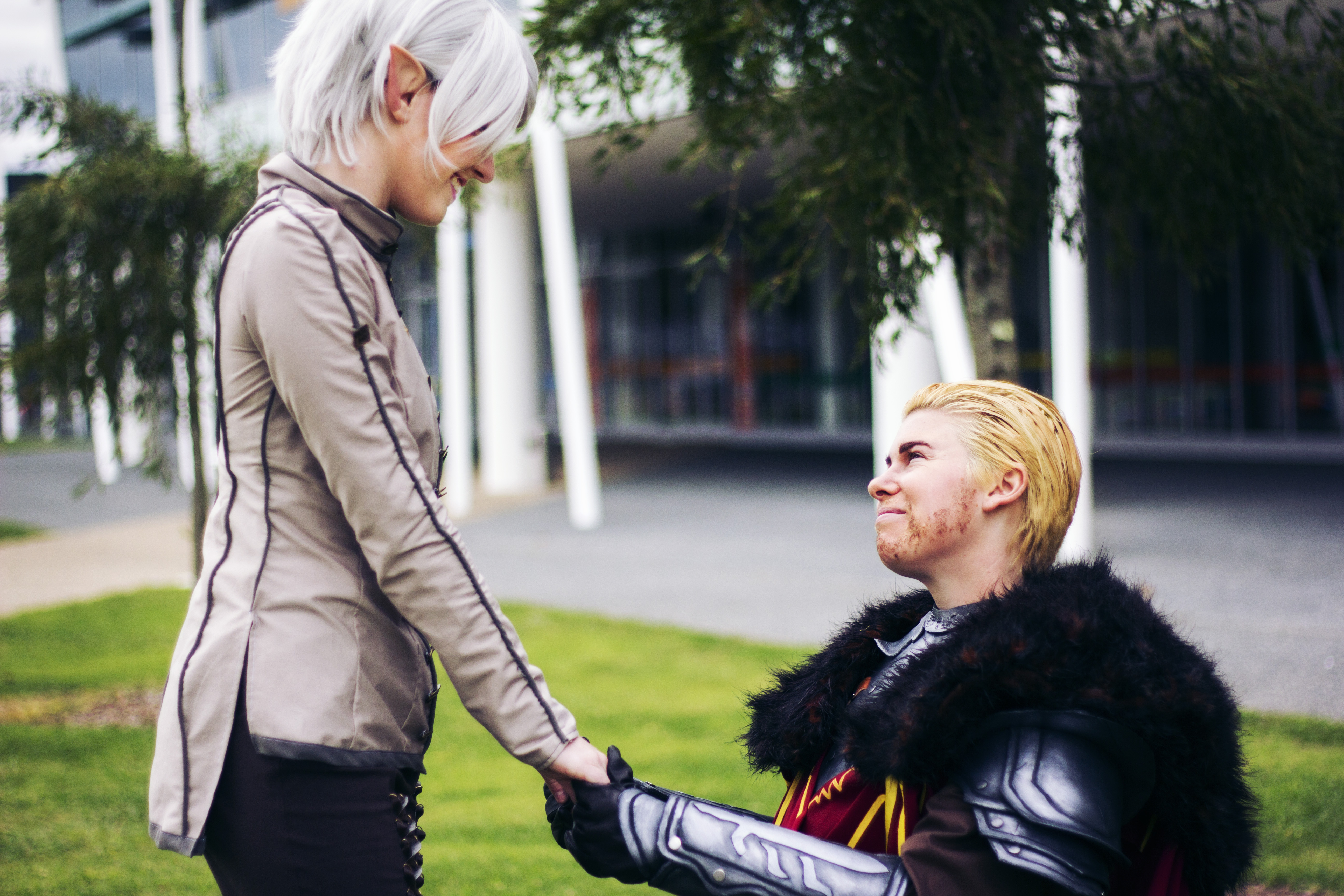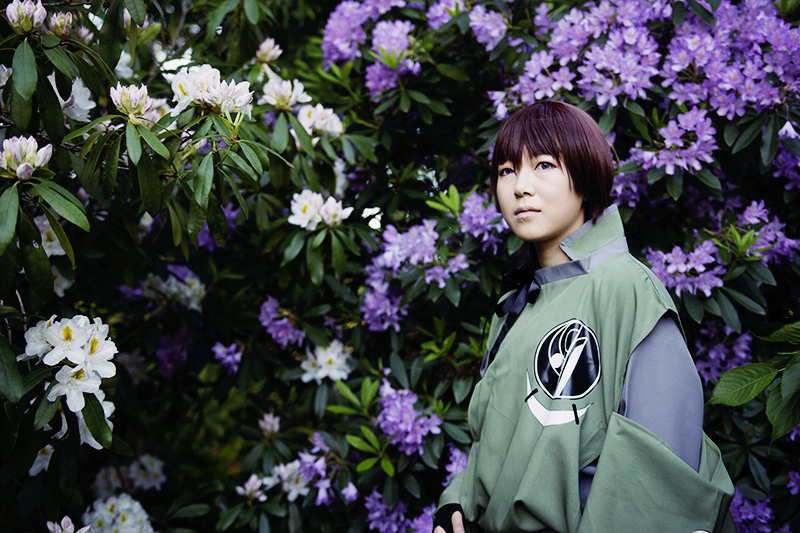
Female Protagonists, Who Cares?
While at PAX Australia earlier this month I tagged along to a panel called, Who Cares About Female Protagonists? with a friend because, well, I care about female protagonists a hell of a lot.
There’s a reason the majority of my favourite games are headed by women and girls, or at least give the player the option to pick their gender (props to you, BioWare.) These games make me feel like I can be a hero in a way male-led games do not. They make me feel like I can be something more than I am.
I love playing the sniper-toting paragon with her blue-skinned girlfriend, the young princess trying to save her father with the aid of her firefly companion, the illegal courier who does sick parkour across blindingly white rooftops. Maybe it’s escapism, but I love the idea that I could be someone like these strong protagonists, that my gender is no barrier on the road to kicking ass.
So, yes, I have very strong opinions on this topic, and I was excited to maybe see the issues I so often speak about online discussed in a somewhat official capacity by professionals in the industry. I may have a lot of feelings regarding representation in games, but I am far from a professional.
The panelists were all lovely, and they said some great things—oh, how we all laughed when Quiet’s name was brought up—but both my friend and I walked out thoroughly disappointed. The question of who cares about female protagonists, and whether or not their appearance in said games is important, was answered with a resounding shrug of the shoulders. Or, that’s how the entire panel came across to me.
Whether that’s what the panelists actually believed (which I’m not sure I believe), that they were constrained by fear of backlash and pissing certain people off (and you all know exactly which people I mean), or the panel was aimed at the most general of audiences, there was no reason for me to have gone. I could’ve tracked down the free donuts instead.
But, who does care, really? Why is it so important to have representation in video games? I’ve previously written about how it felt for me, personally, to finally see a large part of my identity represented in the shows I watch, and it’s a similar thing really, to see yourself in the games you play. Why else are games like Gone Home and Life is Strange becoming more frequent in the mainstream, and games like Dragon Age Inquisition so popular among many minority groups? We often want to see ourselves, to play as people like us.
Despite the overwhelming number of whitebread protagonists in games thus far, women still make up 44% of people who play games—but only around 22% of people who make games. Of the people who play games, women over 18 make up 33%, which means young women and girls under 18 only make up about 11% of all gamers.
That’s not a very big chunk of young girls and teens playing games. If these young girls don’t see themselves in the games they play, they’re less likely to feel welcome in game development, particularly when it comes to coding, a career path that is overwhelmingly seen as a “boy’s club.” Representation is important during younger years, to help kids know they are valid and important, especially in the areas they may love most.
We end up with a repeating cycle, of girls not feeling welcome within gaming and thus not being inspired to make games, which leads to less women working in game dev, which hinders the push for more well-written, well-designed female leads.
Back in high school, I was the only girl in my programming class for a good half a year. For a long time I was treated as if I wouldn’t understand the work by my male classmates, until I passed a test everyone else had to resit, and built and programmed a robot that reigned supreme in our little tournament. While none of the guys had to prove their worth, I did.
I stayed extra hours after school because I loved what I was doing so much, but the attitudes of my peers and the warnings of future toxic environments from my teacher, who was a woman, made me second-guess a field of study I truly enjoyed.
Those weren’t the reasons I left, but they had an effect that stuck with me for quite a few years. I am not a competitive person, and the last thing I want to do is put myself in an environment where I have to compete just to be seen as equal just because of my gender. Funnily enough, despite ditching the class for art history (worst idea I’ve ever had), I’m the only person in that class I know of who’s ended up involved in game dev, albeit in a limited capacity.
Perpetuated by the constant sexism seen in games, the idea that both playing and making games is male-dominated has become ingrained. I’m still constantly astounded by men I know declaring that women only play “those stupid Facebook games,” ignoring the fact that 1. people of every gender play a variety of games, and 2. those are still perfectly valid games.
From where I am now, I can see the different initiatives that are being created to help girls get into games and game development, such as the ‘Girls in Games’ workshop hosted by Auckland’s Media Design School, and even Disney’s ‘An Hour of Code,’ which uses Star Wars characters such as Leia and Rey to attract younger people, especially girls.
“For generations, Star Wars has sparked kids’ curiosity and imagination, and we hope the appeal of characters like Princess Leia and Rey will help fuel greater participation in science and math, especially among girls, around the world. Computer science has helped shape our legacy and changed the way movies are made, which is why programs like the Hour of Code are so important to us.”
– Lucasfilm President Kathleen Kennedy.
Lucasfilm and Disney know that by using female characters like Princess Leia and the newer character, Rey, their program will have more appeal for girls, and it’s awesome that they’re actively working towards that! It’s not rocket science: any gender will respond well to seeing their own gender represented.
That’s part of why men—white men in particular—are so threatened by the feminist movement in games, they’re afraid of losing their representation—which, let’s face it, will never happen. Even if we didn’t have any white male protagonists for the entire year of 2016, there will still be infinitely more games targeted to their demographic than any other come 2017.
Games should be for—and by—everyone, regardless of gender identity, sexual orientation, or ethnicity. Who we see as the protagonists in the games we play should both reflect this and the real world around us. To think otherwise is both ignorant and selfish; gaming doesn’t belong to me, to you, to any one person in the world.
Which is something we are starting to see more, especially with indie games, but also in AAA. As I noted before, BioWare is a perfect example of a company creating hugely successful games while pushing for diversity. Even Ubisoft, after being the butt of the “Woman are hard to animate” joke, is making progress with Assassin’s Creed Syndicate‘s Evie Frye—not to mention that Child of Light, a wonderfully written and beautifully designed game starring a young girl, is by Ubisoft Montreal.
The change is already occurring, because the truth is people do care about female protagonists, and if we can have even one little girl pick up a game and fall in love because she saw herself saving the world, then it’s all worth it.
If you like this, consider supporting me on Patreon, even if it’s just $1 a month! Every little bit helps in letting me stress less and create more.
Header Image: Ubisoft Montreal.


